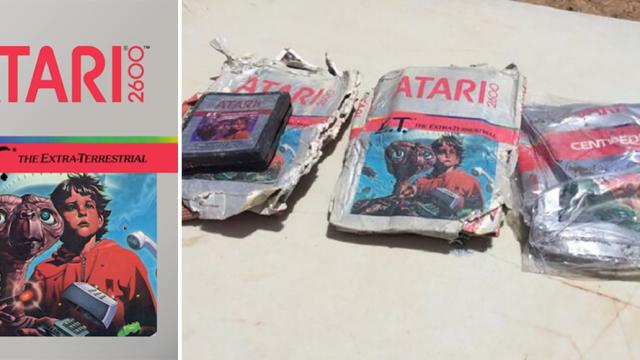Today, diggers unearthed a cache of Atari 2600 game cartridges in a New Mexico landfill. Game aficionados have told the urban legend around the buried games for decades. Now I’m wondering: in a world of digital-only media, will this sort of discovery cease to exist? What do you think?
I’m sort of torn about it. Digital media only really gets “lost” if it’s deleted (purposely or inadvertently) or if the device it’s stored on is misplaced. Thirty years from now, if someone’s kid stumbles upon a rogue copy of Flappy Bird, it will most likely be because he or she found a dusty old smartphone. So which is the relic — the phone, or the apps installed on it?
On the other hand, perhaps our increasingly-intangible digital world is driving us to find the satisfaction of physical artifacts in other ways. Witness the newfound interest in vinyl records even as MP3s become the standard music format.
And of course, there’s the fact that, with digital copies of everything, there’s a safety net that helps prevent media from being lost. Hell, I can play an online version of that terrible E.T. the Extra-Terrestrial game without ever having to set a finger on an Atari 2600. The physical cartridges they dug up in New Mexico weren’t sought out to be played.
So what’s your take? Will people still hunt down cultural relics when we’re living in the cloud? When the content isn’t attached to physical media, what will the artefact be?
